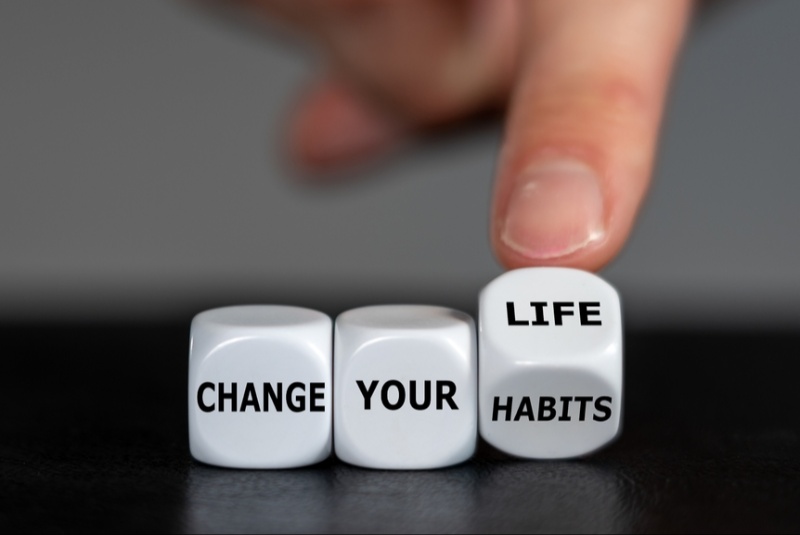Habits are the invisible architecture of our lives. Often, without us noticing, they form the foundation of our daily routines and, in the long run, determine the trajectory of our lives. When harnessed correctly, habits can be the very keystones that propel us towards our desired destinies.
The Essence of Habit
Before delving into the power of habit, it's crucial to understand what a habit is. A habit is a repeated behavior that requires little or no thought. It's an automatic response to specific triggers in our environment. Brushing your teeth after breakfast, checking your phone when you wake up, or taking the same route to work daily – these are all habits that you've formed over time.
Research shows that almost 40% of our daily actions aren't decisions but habits. This significant percentage reveals that a substantial part of our lives operates on auto-pilot. That said, if these automatic behaviors are positive, imagine the kind of progress we can achieve without significant conscious effort!
The Habit Loop
In his book "The Power of Habit," Charles Duhigg outlines the "habit loop." This loop consists of three parts:
- Cue: This is the trigger that starts the habit. It could be an event, time of the day, emotional state, or any other specific trigger. For example, feeling stressed might be a cue for some people to eat junk food.
- Routine: This is the behavior that you automatically engage in after recognizing the cue. Following the previous example, the routine would be eating the junk food.
- Reward: After performing the routine, you get a reward. The reward reinforces the habit loop, making it more likely that you'll repeat the cycle the next time the cue appears. The reward could be a feeling of relief, pleasure, or even just the elimination of the cue (e.g., hunger).
The Power to Change
Understanding the habit loop is crucial because it gives us a blueprint for changing our habits. For lasting change, rather than trying to eliminate a habit, we should aim to replace a negative routine with a positive one, keeping the cue and reward the same.
For instance, if you're trying to quit junk food, you'd identify the cue (feeling stressed), replace the routine (eating junk food with taking a short walk), and still attain a reward (feeling relieved and refreshed).

Keystone Habits
Some habits have the power to start a chain reaction, changing other habits as they move through our lives. These are termed as 'keystone habits,' and identifying them can transform everything. A common example is exercising. For many, when they start working out, they unintentionally start eating better, feel more productive at work, and even reduce their credit card debts. That's because the habit of exercising regularly is a keystone habit that causes a domino effect of positive changes.
Habits and Willpower
Willpower is like a muscle, and just like any muscle, it gets fatigued with overuse. Relying solely on willpower to change or create new habits can be a flawed approach. That's where habits become a game-changer. Once a positive behavior becomes a habit, it no longer requires willpower. It operates automatically, ensuring that you're consistently moving towards your goals, even when your willpower reservoir is running low.
The Road Ahead
Embarking on the journey to change or establish habits can seem daunting. However, with understanding and strategy, you can harness the momentum of habits to pave a path to your desired destiny. Here are a few steps to guide you:
- Awareness: Before changing a habit, you need to identify it. Maintain a habit journal to jot down your routines and their triggers.
- Start Small: Aim for small changes. If you wish to read more, start with just 5 minutes a day. This reduces resistance and makes the task achievable.
- Celebrate Small Wins: Every time you successfully replace a negative routine or establish a new habit, celebrate. This reinforcement is vital for motivation.
- Stay Consistent: Remember, consistency is the key. Even if you falter once, get back on track. It's the repeated effort that carves out a habit.
In conclusion, habits hold transformative power. Whether they are steering us towards success or leading us astray depends on our awareness and intent. By understanding the science behind habits and employing strategies to modify them, we hold the reins to not just change our daily routines, but to redefine our lives. Harness the momentum of habit, and let it be the keystone to your life transformation.




